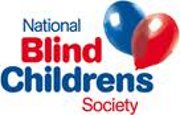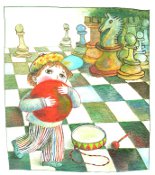Communication Matters calls for reform in funding and delivery of AAC (augmentative and alternative communication) services
From Communication Matters press release -
Communication Matters, the lead UK organisation dedicated to supporting children and adults who need augmentative and alternative communication (AAC), has recently shared its reaction to the closure of a specialist facility in Oxford and calls on the Government to roll out a national model of delivery for AAC services and equipment.
Earlier in the month it was announced The ACE Centre in Oxford would close its doors in June this year. The centre has, for nearly 30 years, provided crucial support for children and young people with augmentative and alternative communication (AAC) needs.
Dr Janice Murray, Chair of Communication Matters, said:
"It is sad to see the closure of The ACE Centre which has served AAC users and professionals well over its 30 years of existence. It is vital that we do not lose any further specialized AAC services across the country who like The ACE Centre offer a much needed specialist service.
"To this end we are calling on the Government as part of its health reforms to implement the proposals put forward by Jean Gross, the former Communication Champion, for a national model of delivery for AAC services and equipment. Currently in the UK, specialism around AAC is under-provided and there is an urgent need to develop and maintain both national and regional centres to support those with AAC needs. If we are to make an impact and secure equitable funding for AAC users, the time for movement has to be now."
The Specialised AAC Provision 'commissioning national services' report, authored by Jean Gross, details and costs a model of national commissioning for specialist AAC services. It outlines a 'hub and spoke' model ensuring complex AAC needs are defined as specialist and therefore funded nationally with less complex needs being managed in a supported network at local level.
The 'hub and spoke' proposal comes at a critical time when the NHS is considering the future of specialised services and would hope to provide a route to clear funding of equitable services and provision across the country.
Dr Murray concludes:
"Communication Matters is encouraged by the recent announcement of the AAC grants by the Department for Education, to support and develop the existing services to demonstrate how a model of service delivery can work across England. These grants are about to be confirmed and will help develop the 'hub' services described in Jean Gross' report. We will be following these projects closely to ensure the things learned from this work inform the Government's decision around specialist health commissioning."
Note: AAC is the term used to describe methods of communication which can support or replace the more familiar methods of speech and writing when these are impaired. AAC includes unaided systems such as signing and gestures, as well as aided techniques ranging from picture charts and paper-based systems to the most sophisticated computer technologies currently available, referred to as communication aids. AAC can help someone understand communication, as well as a means of expression.
 From 1st June 2012 the National Blind Children's Society is providing a new education advice and support service for families of children with visual difficulties
From 1st June 2012 the National Blind Children's Society is providing a new education advice and support service for families of children with visual difficulties 

 TAC for the 21st Century (2nd edition) is now in the Kindle bookshop (and can be downloaded onto your PC).
TAC for the 21st Century (2nd edition) is now in the Kindle bookshop (and can be downloaded onto your PC).